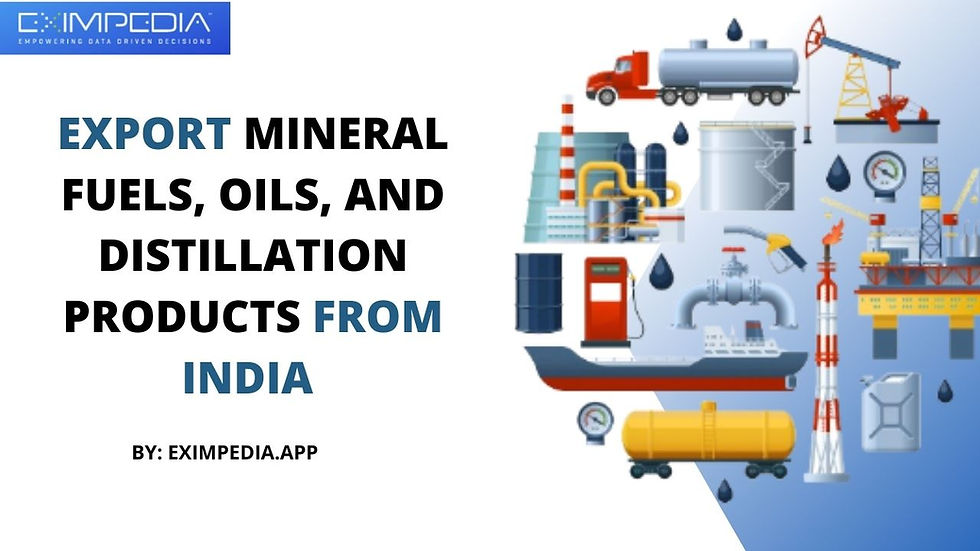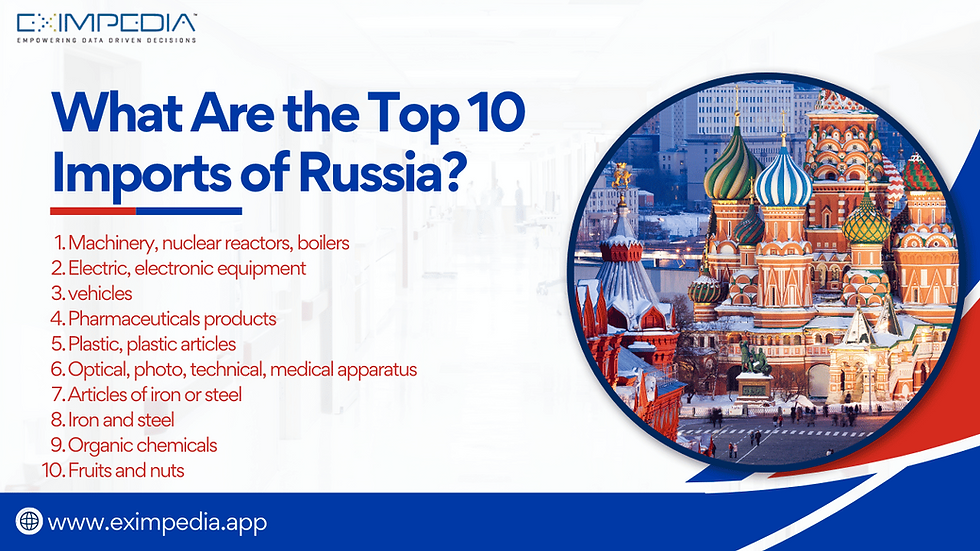How to Export Mineral Fuels, Oils, and Distillation Products from India to Canada?
- eximpedia13
- Nov 9, 2023
- 2 min read
As we all know, international commerce is critical in supporting economic growth and strengthening diplomatic connections between nations in today's global economy. Mineral fuels, oils, and distillation products have enormous export potential for countries like India, especially with trade connections with countries like Canada. India, a resource-rich country, is a major producer of mineral fuels and oils, while Canada is a growing market for such commodities. This article will look over the significant phases and concerns involved in exporting these products from India to Canada.

Market Dynamics of Mineral Fuels, Oils
Before beginning the export process, it is critical to understand both nations' market dynamics. India is a significant producer of mineral fuels, oils, and distillation products including refined petroleum oils, coal, and other derivatives. Canada, on the other hand, has a strong need for these products due to its industrial and consumer needs.
It is critical to conduct research: It is critical to identify specific products in demand, market trends, laws, and possible buyers or distributors. Platforms such as the High Commission of India in Canada or other trade associations in both nations can provide useful information.
According to import and export data, Mineral oils and distillation products are estimated to reach USD 4.995 billion by 2027, increasing at a CAGR of more than 3% between 2022 and 2027.
Major Steps of Export Mineral Fuels, Oils, and Distillation Products
You can export the mineral fuels, oils, and the distillation products with the help of agents or the online platforms like Eximpedia.app. Here we now discuss the major steps to export these products:
Understand Export Regulations: Learn about India's export regulations for mineral fuels and oils. Understanding the procedures, required documentation, and compliance requirements established by organisations such as the Directorate General of Foreign Trade (DGFT) is part of this.
Know Canadian Import restrictions: Canada has its own set of import restrictions that are enforced by government entities such as the Canada Border Services Agency (CBSA). It is critical to understand these regulations, which include tariff rates, customs processes, and product requirements.
Obtain Required Documentation: This involves obtaining export licences, certificates of origin, product quality certifications, and conformity with certain standards and labelling requirements.
Understand Taxation and Duties: Become familiar with the tax and duty consequences, as well as any preferential trade agreements between India and Canada that may impact the export process.
Gain a Market Research Report: Obtaining the canada market report is crucial to understand the current insights, opportunities, trends, Canada import data and its specific HS Codes. It is advisable to connect with the professionals and make your export import journey successful.
Conclusion
So, exporting mineral fuels, oils, and distillation products from India to Canada entails a slew of considerations, ranging from regulatory compliance to logistics and market knowledge. It necessitates thorough preparation, regulatory understanding, and proactive involvement with stakeholders. Leveraging resources, obtaining expert guidance, and staying current on market trends can all help considerably to successful exports and the expansion of economic links between these two countries. However, if you need any kind of assistance regarding the import data canada or india export import data, connect with Eximpedia.app and gain a global market insights hassle-free. To book a free live demo, click here




Comments